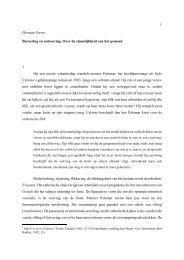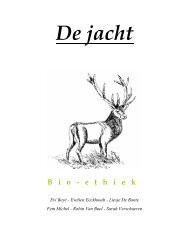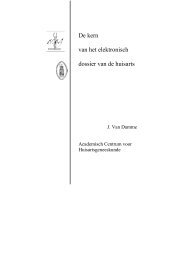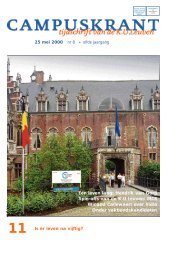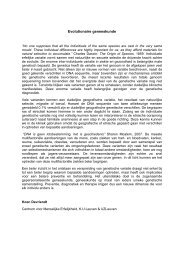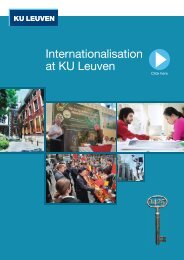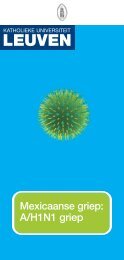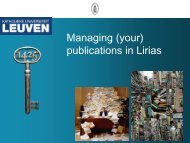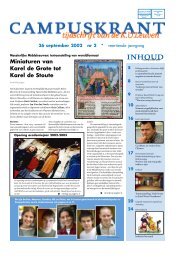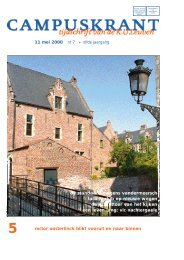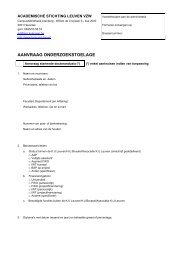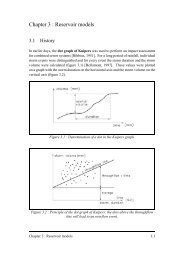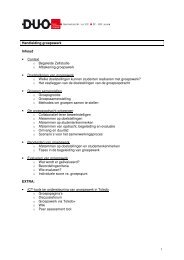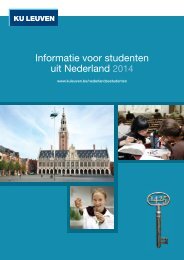EQUALITY GUIdE - KU Leuven
EQUALITY GUIdE - KU Leuven
EQUALITY GUIdE - KU Leuven
Create successful ePaper yourself
Turn your PDF publications into a flip-book with our unique Google optimized e-Paper software.
80 Equality Guide<br />
ulation of this survey) have already used Minerva to hand in homework, evaluations,<br />
etc. Therefore, it can be assumed that they are familiar enough with the system<br />
to answer the survey adequately.<br />
2. Since developing and sending surveys through Minerva is still in its early stages, not<br />
all potential types of questions are available in the existing model. While developing<br />
the survey, a close cooperation with DICT was therefore imperative.<br />
3. Because the survey is only accessible through a link from the Ghent University website,<br />
it is not possible to increase the number of responses by sending a second reminder.<br />
2.3.2. Target group<br />
This study focuses on the extent to which the students’ expectations correspond with<br />
the reality of an academic career. Because these questions could only be answered by<br />
students who already had a certain knowledge of the working principles and structure<br />
of Ghent University, it was decided to address only students in their second to last year<br />
of study (from here referred to as ‘final-year students’). This choice can also be motivated<br />
by the following arguments:<br />
! A lot of students end their study prematurely after the first or (to a lesser degree<br />
second) year of study.<br />
! The final-year students have a certain familiarity with Ghent University and are thus<br />
able to hold an opinion on its academic system. They make contacts with the academic<br />
staff during the lectures or during office hours. A majority of this research<br />
population has already had personal contacts with lecturers regarding their dissertation.<br />
Therefore, they are able to give a balanced judgement on the academic staff’s<br />
daily tasks.<br />
! Many final-year students have already contemplated their various career opportunities.<br />
Some of them might even have taken steps for or made thorough inquiry into<br />
a potential (academic) career.<br />
! The majority of the inflow into PhD’s or academic projects comes directly from<br />
final-year students. Consequently, professors already may have approached certain<br />
students from the research population about a future cooperation. Furthermore, the<br />
Advisory Centre for Students organizes information sessions on various career opportunities<br />
for this target group.<br />
! It was decided to include students in their second to last year of study, because the<br />
students have to determine the subject of their dissertation in the course of this<br />
year. Most students approach lecturers in this phase, which means that this is the<br />
best moment to alert them to their options on an academic level.<br />
! Finally, final-year students are more acquainted with Minerva than students in the<br />
first years, which is a decisive factor for the survey’s success.<br />
Since the distribution of male and female academic staff strongly depends on the faculty<br />
in question, the students of all eleven faculties of Ghent University were questioned.



